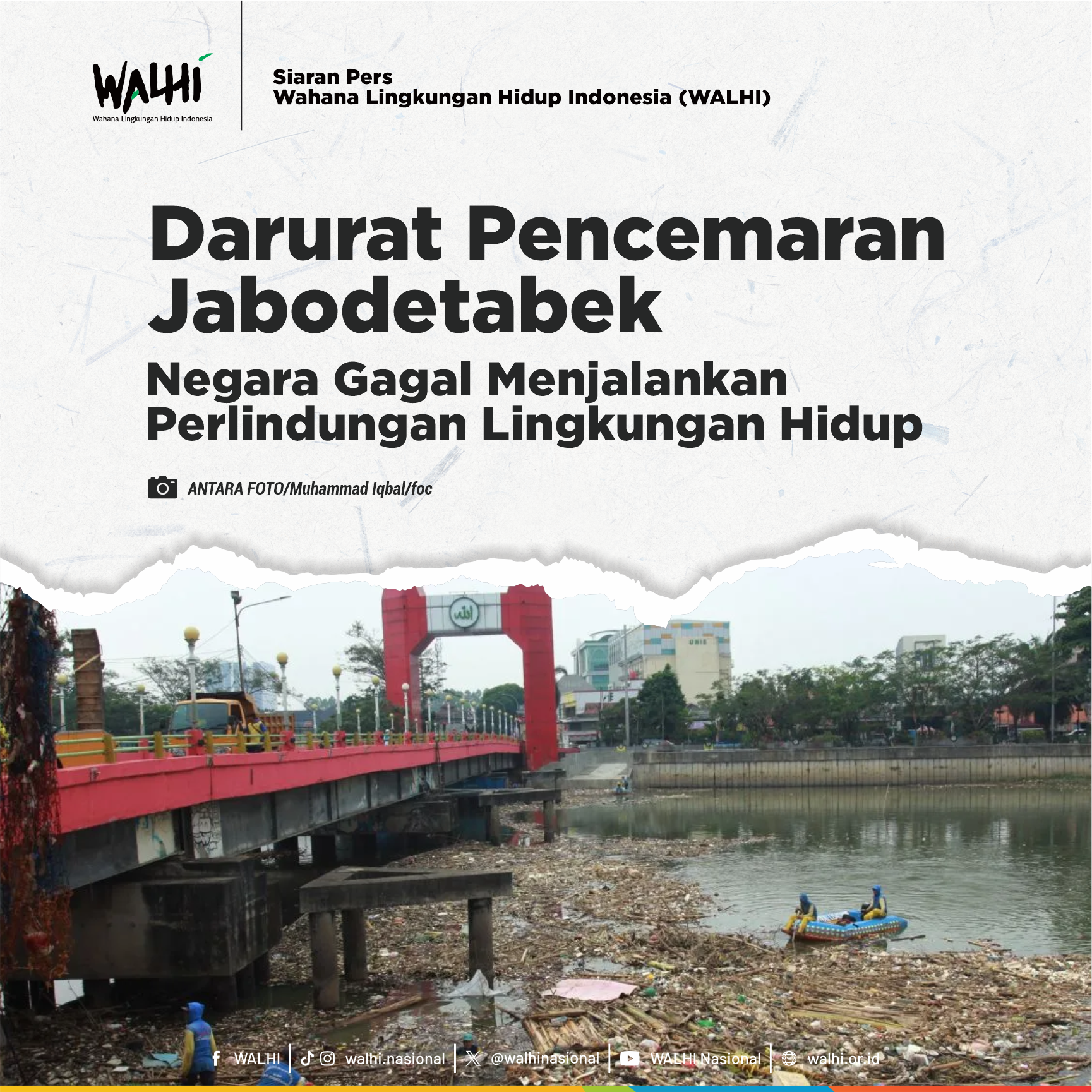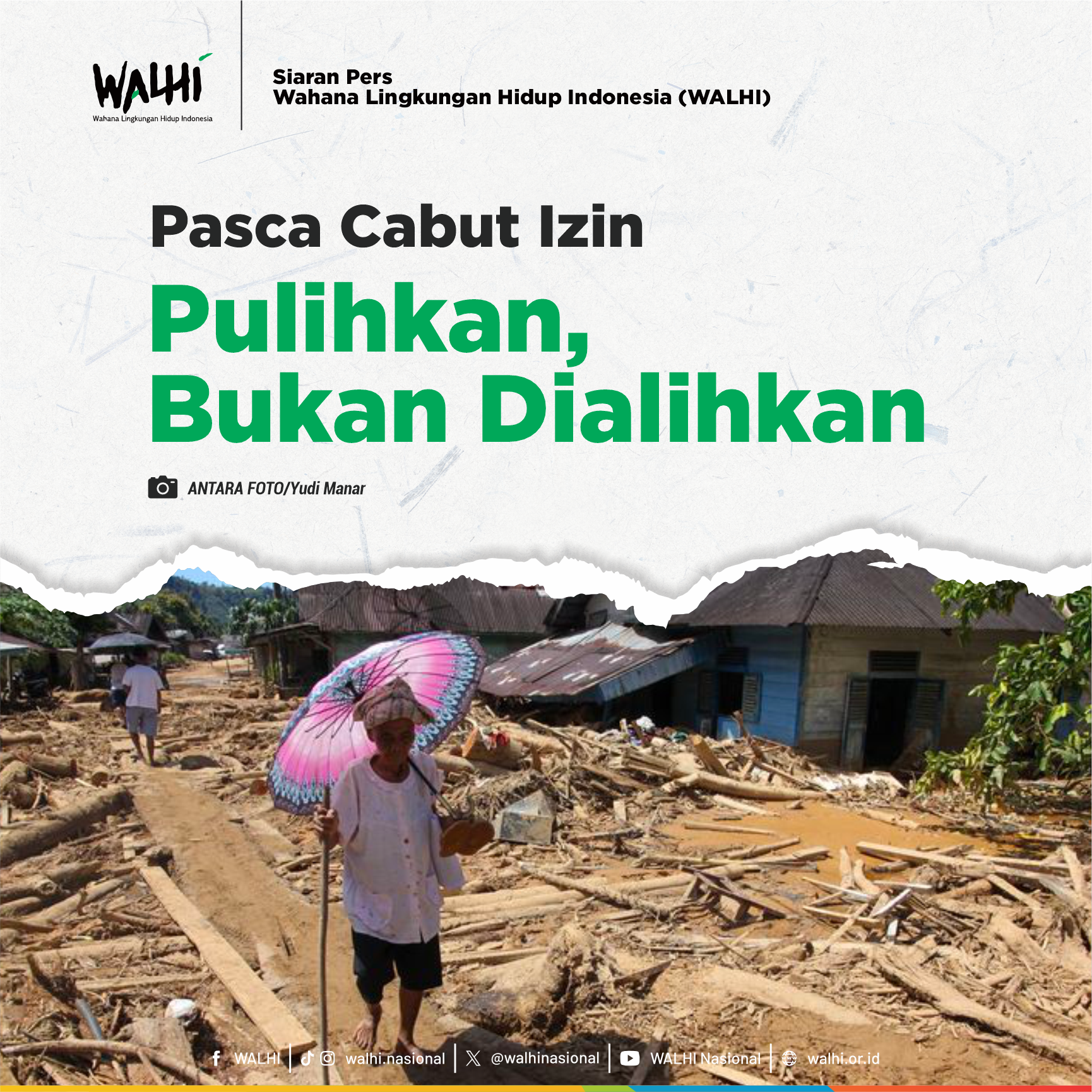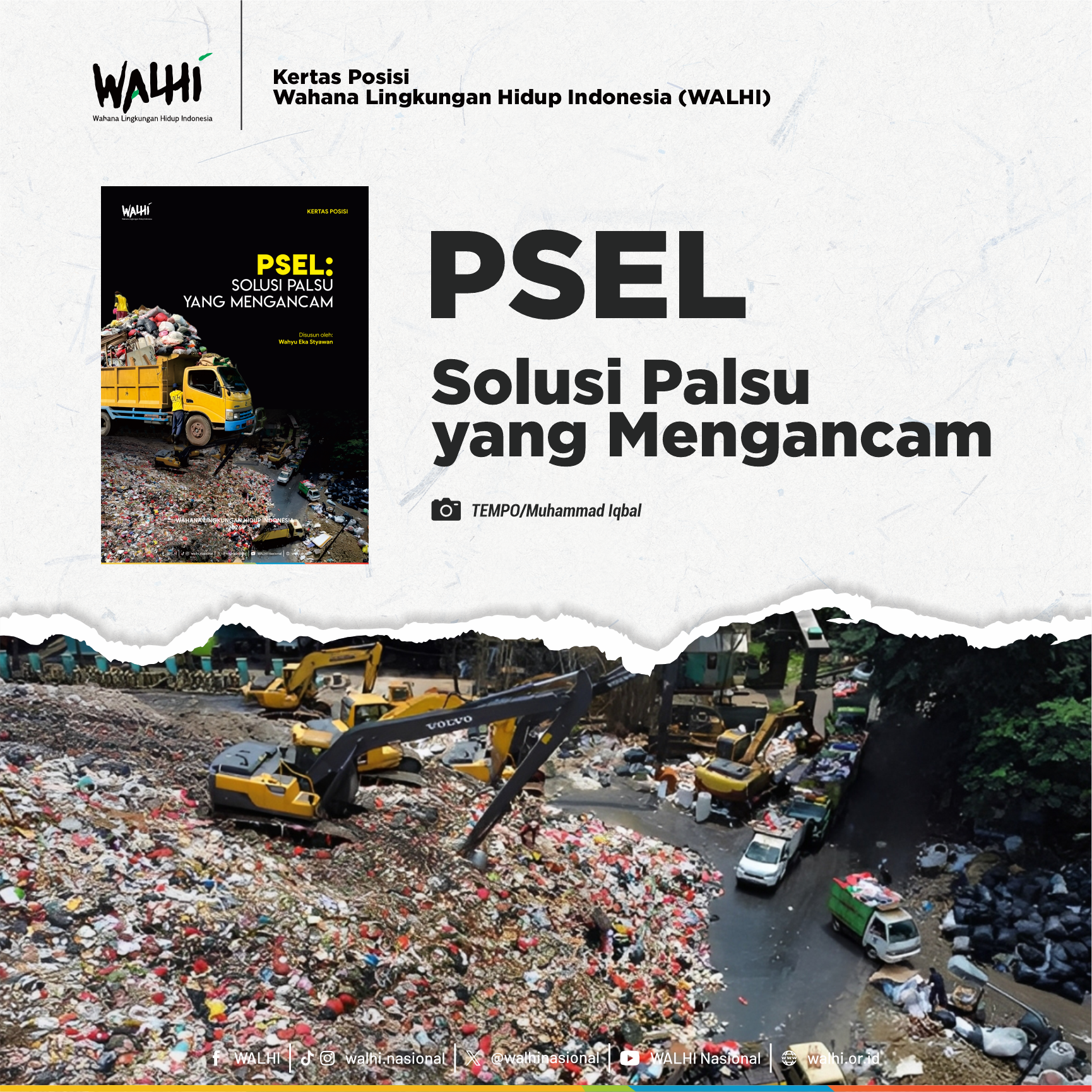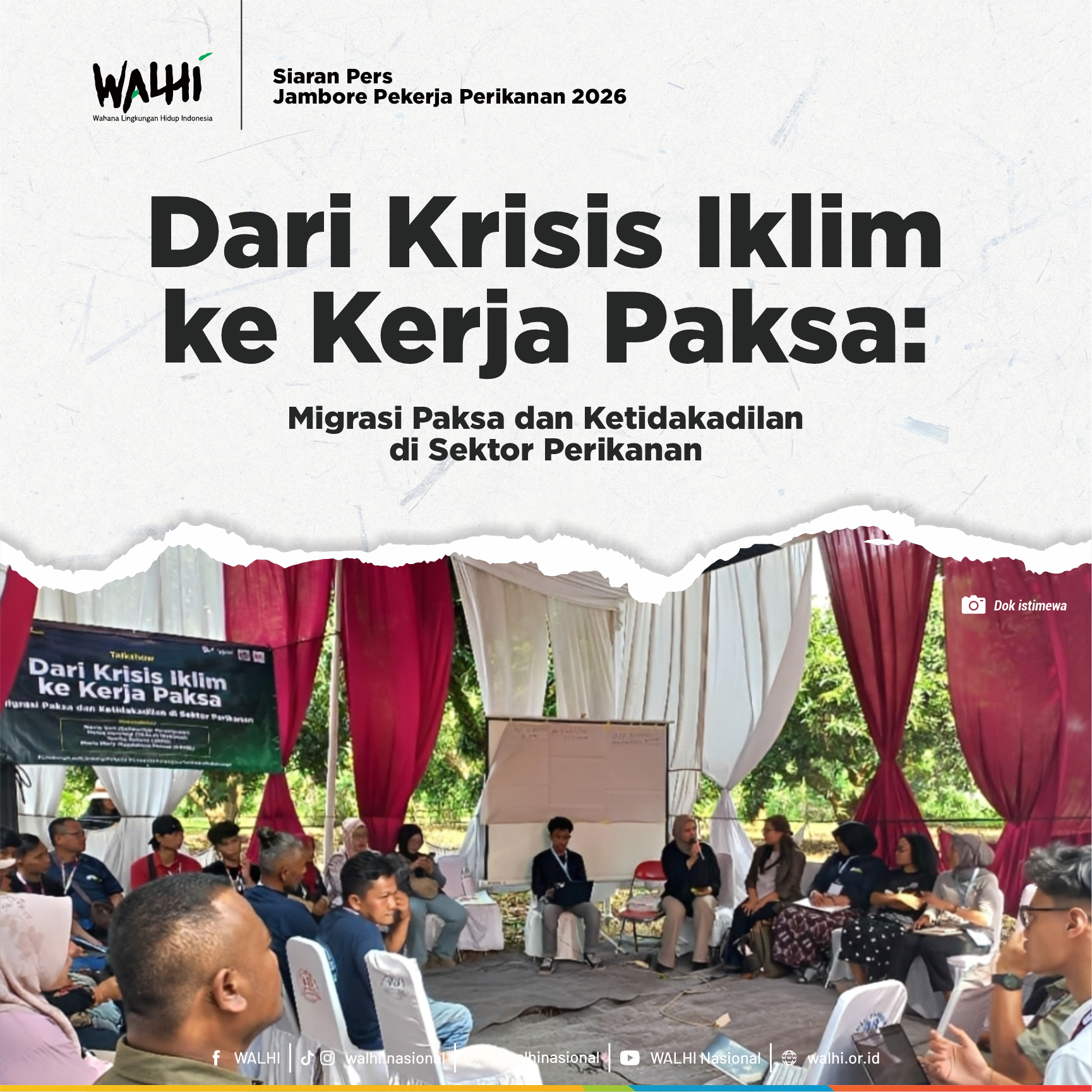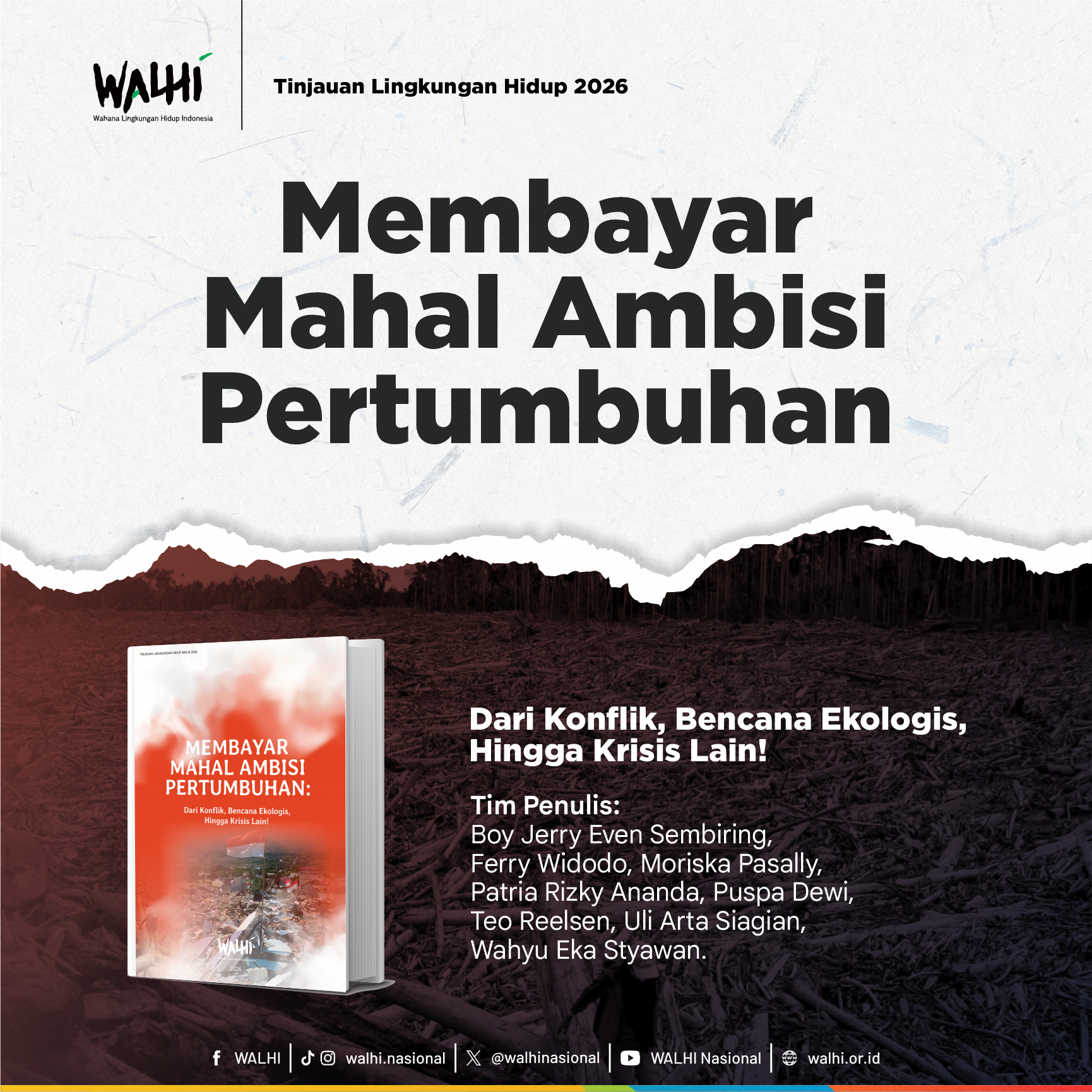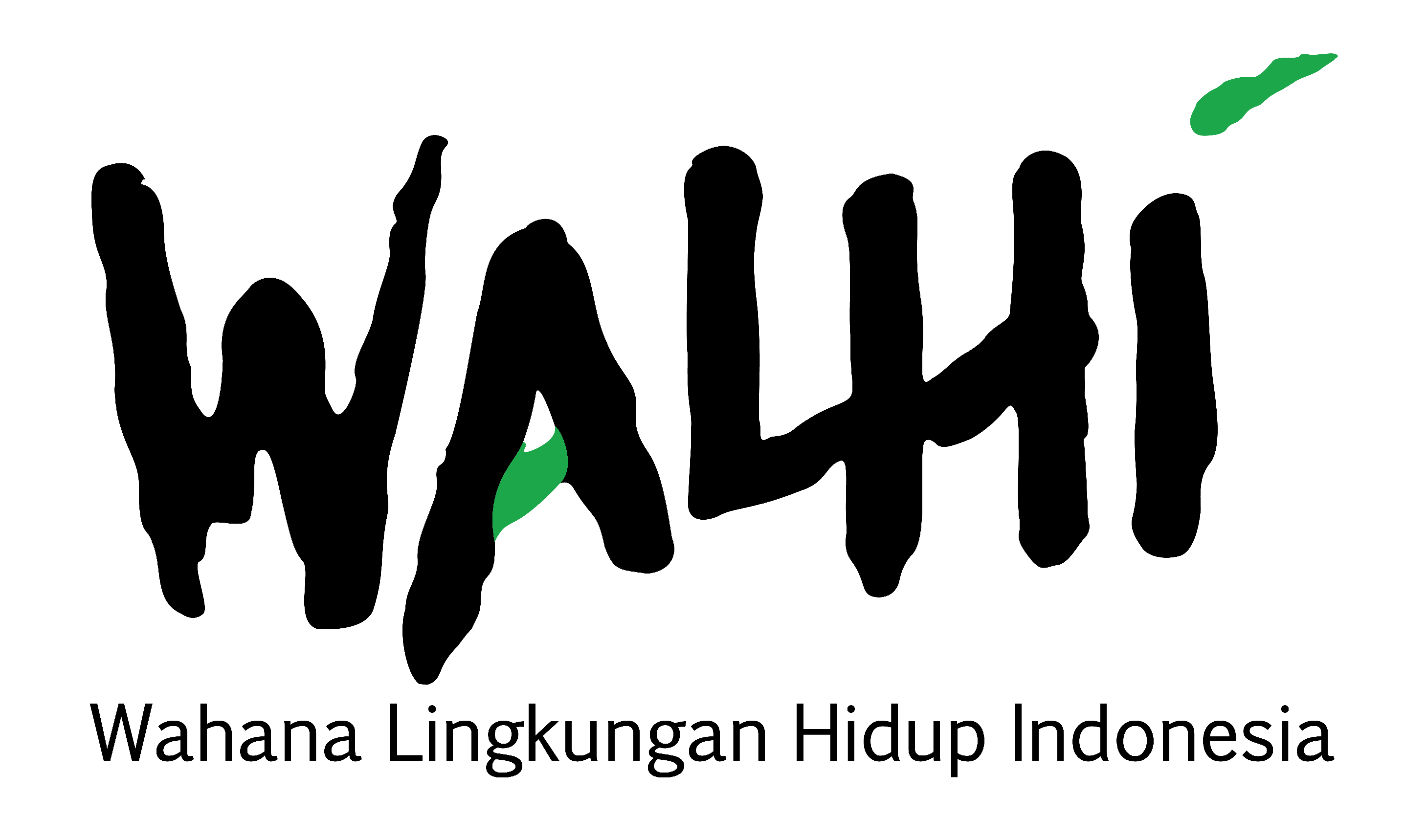Press Release
Jakarta, November 8th, 2025- In the momentum of the COP 30 Summit in Belém, Brazil, the Friends of The Earth Indonesia (WALHI) called out the Indonesian Government to immediately stop promoting false energy transition that legalizes deforestation and fully recognize the role of indigenous peoples and local communities as guardians of the most vital ecosystems in this country.
COP 30 should have been a turning point in global climate diplomacy. World leaders should acknowledge that exceeding the 1.5°C threshold is now inevitable, calling this failure a “moral failure and a fatal omission.” The conference’s primary call was not for new promises, but for rapid, concrete, and large-scale implementation. Amid this global urgency, WALHI/Friends of The Earth Indonesia emphasized that Indonesia cannot continue to maintain an exploitative economic model and an energy transition dependent on natural resource extraction.
WALHI's latest report, "Legalizing the Climate Crisis: Systematic Deforestation in the Name of Energy Transition in Indonesia," reveals that approximately 26.68 million hectares of Indonesia's forested areas, equivalent to 25.6% of the nation's total forest cover, are under pressure from extractive industry permits, such as Forestry Business Permits (PBPH), Mining Business Permit Areas (WIUP), and Cultivation Rights for Plantation (HGU). If all of these areas were opened to support energy transition projects, Indonesia could potentially release more than 9 billion tons of carbon dioxide equivalent (CO₂e) into the atmosphere, a figure equivalent to the accumulated emissions from the energy sector over the past 25 years.
Uli Arta Siagian, WALHI National Forest and Big Plantation Campaign Manager, said, "These findings show that current energy transition projects, such as electric vehicles, geothermal energy, biomass co-firing, and bioenergy, are actually driving large-scale deforestation. Reliance on forests and land as a resource for the energy transition has obscured the energy sector's responsibility to directly reduce emissions. Mitigation strategies that rely on the forestry and land use (FOLU) sector to offset fossil emissions are considered insufficient and risk increasing the practice of deforestation."greenwashing”.
World leaders, including Indonesia, have declared that Indigenous Peoples and Local Communities are key actors in climate protection and home for the solutions. "However, for us, these statements are just empty promises, as they are not followed by concrete action. Recognition and protection of the rights of Indigenous Peoples and local communities remains slow. Currently, 848,000 hectares of community-managed areas facilitated by WALHI have not been recognized by the government. Yet, these areas have been proven to have lower deforestation rates, store carbon more effectively, and maintain biodiversity. Legal recognition of their land rights is not only a moral imperative, but also a practical and proven climate strategy," said Bayu Herinata, Executive Director of WALHI Central Kalimantan.
On the other hand, the Indonesian government, through its special presidential envoy, stated that Indonesia is attending COP 30 as a constructive partner, bringing policy instruments such as the Nationally Determined Contribution (NDC), the Presidential Regulation on Carbon, and the Tropical Forest Fund. However, WALHI believes that without correcting licensing policies and halting legal deforestation, these commitments will be insufficient to address the increasingly pressing climate crisis. Current policy instruments cannot replace concrete action on the ground, particularly in terms of ecosystem protection and recognizing community rights.
WALHI also criticized Indonesia's SNDC approach, which still maintains a growth-based economic paradigm as the basis for emissions reduction. This model has historically been directly proportional to increased emissions, especially if the economic structure remains reliant on fossil fuels and there has not been a major transformation in energy efficiency and consumption behavior. The renewable energy mix targets set in the SNDC 19–23% by 2030 and 36–40% by 2040 are deemed insufficiently ambitious to align with the 1.5°C pathway under the Paris Agreement.
Gandar Mahojwala, Director of WALHI Yogyakarta, said, "In the context of COP30, which demands accountability and real implementation, WALHI calls on Indonesia to strengthen the recognition of community-managed areas as a first step towards a just, democratic, and false energy transition. SNDC still promotes false solutions such as incineration, biomass energy, solid recovered fuels (SRF), and waste-derived fuel (RDF). The people have real climate solutions. Without empowering the people, the direction of national climate policy will remain mired in rhetoric, while ecological damage and social inequality persist.”
Contact Person:
Friends of the Earth Indonesia | +62 811-5501-980

